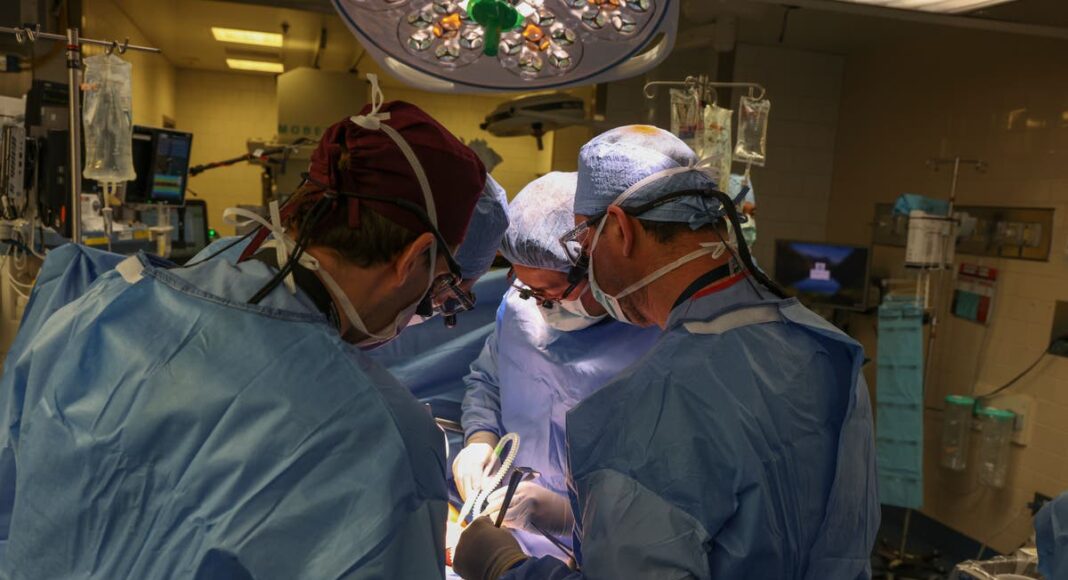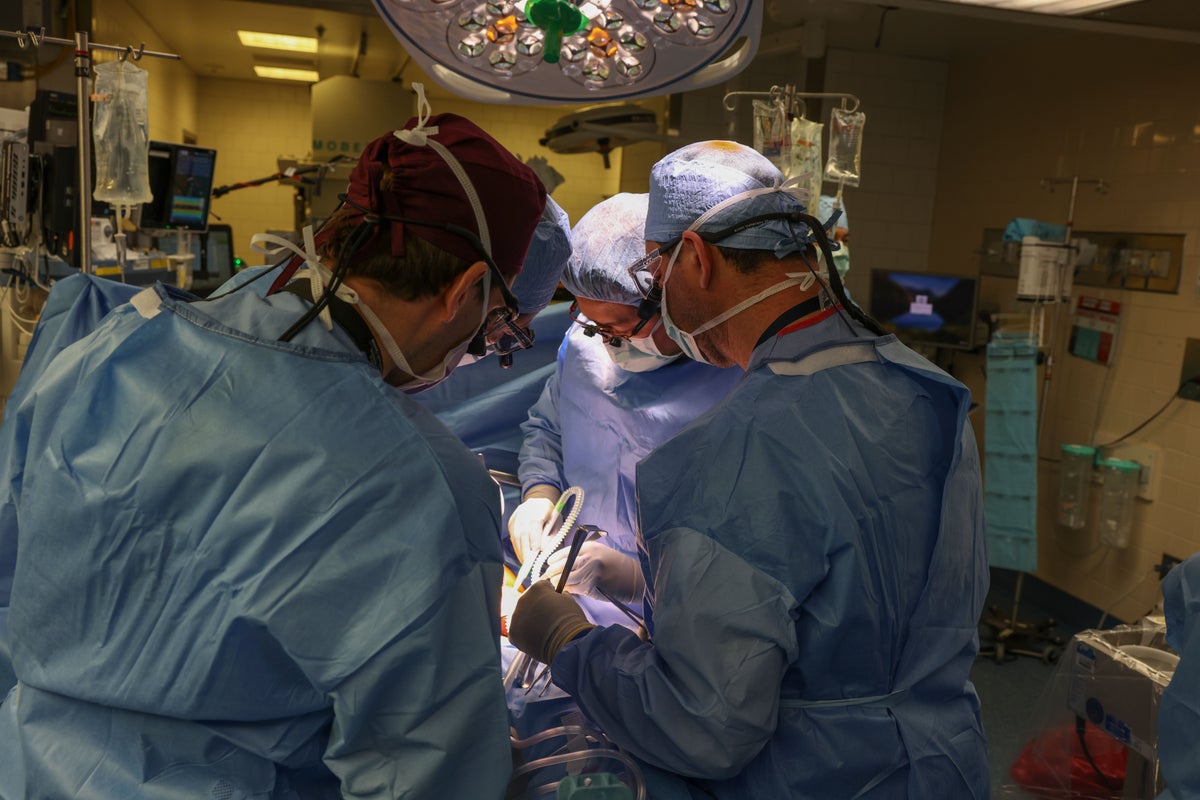The latest headlines from our reporters across the US sent straight to your inbox each weekdayYour briefing on the latest headlines from across the US
In a world first, doctors in Boston have performed a kidney transplant from a genetically modified pig into a human. The kidney was taken from the pig and transferred to a 62-year-old man who was living with end-stage kidney disease.
The novel procedure was performed by surgeons on 16 March at Massachusetts General Hospital (MGH), and took four hours to complete, the hospital announced on Thursday. It marks a major turning point for the medical world and could prove to be a milestone in the pursuit of making organs more readily available to patients.
After this successful attempt, the news could bring hope to more than 100,00 people in the United States who are on the waiting list for an organ to become available for transplant, according to the United Network for Organ Sharing. Around 17 people die each day while they wait for an organ.
The man who received the transplanted kidney, which came from a pig that was bred with 69 genetic modifications to make it suitable for human transplantation, has said he hopes the success of the procedure will “proe hope for the thousands of people who need a transplant to survive”.
Richard Slayman, from Weymouth, Massachusetts, who underwent the groundbreaking surgery, weighed up the pros and cons of having a kidney transplant from a pig with the team at the transplant centre.
The recipient of the first successful pig-to-human kidney transplant has spoken of his wish that it will bring hope to others who are waiting for an organ
(Massachusetts General Hospital)
Mr Slayman said his kidney started to fail in 2023, adding that he had full trust in the team at the Massachusetts hospital to “meet my goals of not just improving my quality of life but extending it”.
The hospital said the patient is recovering well and should be discharged soon. “The real hero today is the patient, Mr Slayman,” said Joren C Madsen, the director of the MGH Transplant Center, “as the success of this pioneering surgery, once deemed unimaginable, would not have been possible without his courage and willingness to embark on a journey into uncharted medical territory.”
Mass General Brigham, an integrated healthcare system, has an illustrious history in the field of organ transplantation. The world’s first successful organ transplant was performed at Brigham and Women’s Hospital in 1954 – when the organ in question was also a kidney.
Another achievement on its roster includes the nation’s first ever penile transplant, which was performed at MGH in 2016.
“Nearly seven decades after the first successful kidney transplant, our clinicians have once again demonstrated our commitment to proe innovative treatments and help ease the burden of disease for our patients and others around the world,” said Anne Klibanski, the president and CEO of Mass General Brigham.
The pig kidney, supplied by eGenesis, a Massachusetts biotechnology company, was from a genetically edited animal, in which 69 modifications were made using a technology called CRISPR-Cas9.
The technology removed harmful pig genes and replaced them with specific human genes in order to ensure its organs would be compatible with the human body.
The procedure has the potential to be a landmark event in the field of xenotransplantation – meaning animal-to-human transplantation – and has offered a beacon of hope for those living with kidney disease.
It took surgeons four hours to perform the groundbreaking transplant
(Massachusetts General Hospital)
The kidney is the most common organ needed among people who require a transplant, according to the Journal of the American Society of Nephrology, and end-stage kidney disease rates are predicted to increase by between 29 and 68 per cent in the United States by 2030.
Mr Slayman, the patient involved in the pioneering procedure, has been living with type 2 diabetes, hypertension and kidney failure for many years, and has had a kidney transplant before, in 2018, when the organ came from a deceased human donor.
However, his transplanted kidney started to show signs of failure around five years later, and Mr Slayman had to resume dialysis in 2023. He experienced complications and had to visit the hospital every fortnight for declotting and surgical revisions, which had a significant effect on his quality of life.
Many of the doctors at the hospital are hopeful that the advances in xenotransplantation can be a solution to the crisis that revolves around the lack of organs for patients who desperately need them to survive.
Despite the success of the transplant, the science of xenotransplantation is still an emerging field. There have been two pig-to-human heart transplants in the United States, but in each case, the patient died only a few weeks after the procedure.
Mr Slayman’s procedure was also performed under the FDA’s compassionate use programme, which allows patients with serious, life-threatening illnesses or conditions to gain access to experimental treatments.
However, the experts in Massachusetts are celebrating the advanced transplant as a “major milestone” that they hope could improve the lives of future patients.
“I am firmly convinced that xenotransplantation represents a promising solution to the organ shortage crisis,” said Leonardo Riella, the medical director in charge of the team of doctors who performed the procedure.




